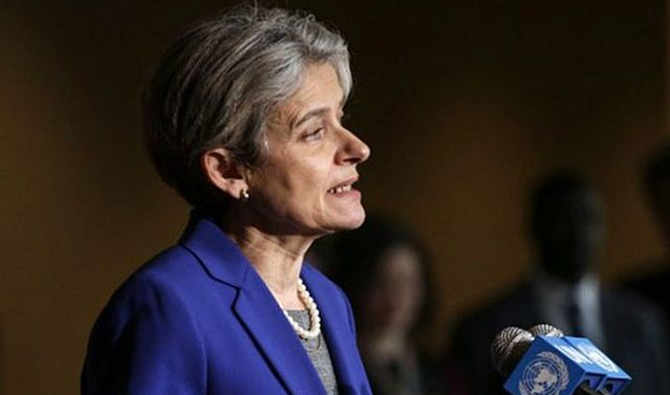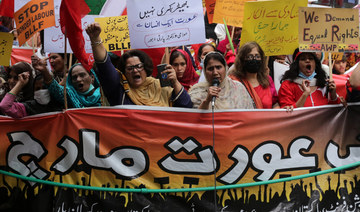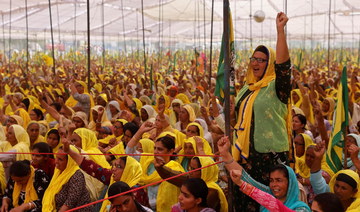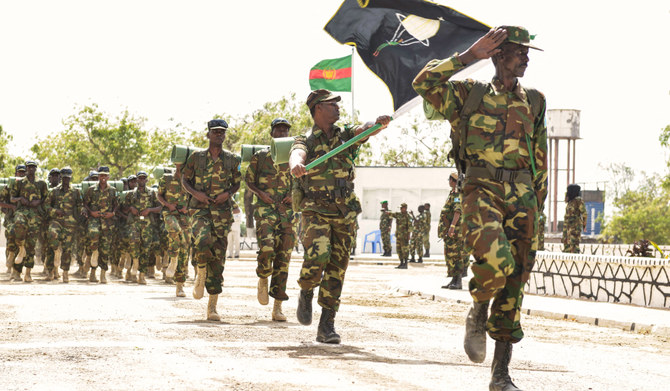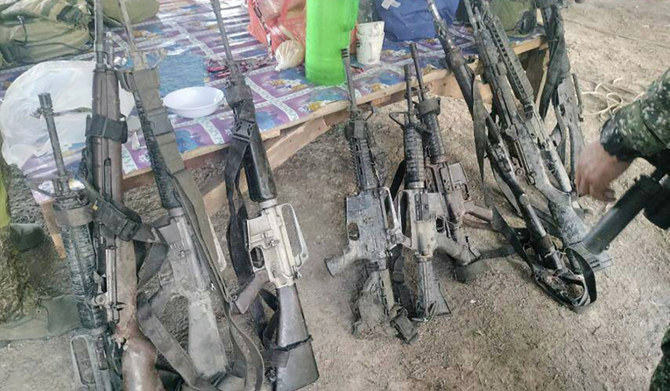LONDON: The former director-general of UNESCO on Monday urged the world to do more to alleviate the plight of female refugees suffering as a result of the coronavirus pandemic.
Speaking at the Higher Committee of Human Fraternity’s Women’s 2021 Forum, attended by Arab News, Irina Bokova said: “Women are facing increasing social economic and safety challenges due to the coronavirus pandemic — from vulnerable refugees to working mothers. Women are facing unprecedented obstacles that threaten to reverse years of progress toward women’s rights.”
She added: “We know that the impact of crises are never gender neutral, and COVID-19 is no exception. When we talk about refugees, it’s a crisis within a crisis. We know that in many camps … displaced persons are mostly women and girls, who are at risk because of gender-based violence and lack of hygienic facilities.”
Bokova said: “There’s a need for a lot more funding. There’s a need for political action. Over 8 million refugee children are no longer able to go to school. Part of this I’d say is (due to a) dramatic increase in forced, early and child marriages. We have to take all this into account when we talk about our response to the COVID-19 crisis.”
Ambassador Susan Esserman, former US assistant secretary of commerce and deputy trade representative, highlighted the risk faced by women and girls at the hands of human traffickers, which she said had been heightened by the pandemic.
“Sex and labor trafficking thrives on human misery and vulnerability. Isolation is a tactic used by traffickers to control their victims. While lockdowns are vitally necessary for public health, traffickers have taken advantage of the increased isolation, driving trafficking further underground and putting victims at even greater risk,” she said.
“During economic crises, traffickers prey on and seek to exploit those most desperate for income, shelter, food, housing and security. And during this pandemic, critical government services that would ordinarily support victims have been extraordinarily limited at the exact time there has been a surge in demand for those services. With school closures, children and adolescents have been spending more time on the internet, and have become more vulnerable to trafficking.”
Noura Al-Kaabi, the UAE’s minister of culture and youth, highlighted her country’s response to the pandemic in the context of measures meant to keep women and children secure.
“Talking about how the pandemic has affected us — especially working mothers, with online learning — it’s clear there are many disruptions, with job losses, economic slowdowns across the world, while the impact on some sectors may be far larger than others. We don’t have any comprehensive and precise data on the impact of the pandemic yet on the (female) workforce,” she said.
“The UAE has a strong legal framework to ensure that women aren’t disadvantaged in any way in the job market. In 2018, the UAE Cabinet approved a law on equal wages and salaries for women and men. This covers both private and public sectors,” she added.
“The most important decision concerning women in the job market was allowing mothers with children at age 6 or below to work remotely from home. The decision included husbands of working women in the medical sector — it’s a joint effort, and it’s crucial for us to strike that balance.”
Al-Kaabi also reflected on her country’s progress on female empowerment more generally. “After the 2019 elections, women comprised half of the Federal National Council members. In the IMF (International Monetary Fund) World Competitiveness Yearbook 2020, the UAE ranked first in the female parliamentary representation index, and more than a third of UAE diplomats are female,” she said.
“I’ll give you just quick percentages: Fifty percent of women (make up) the Parliament; we have 66 percent … in the public sector; we have 75 percent in the healthcare sector; 50 percent worked in the Mission of Hope, the Mars mission, and leading that mission was a great scientist — a woman; we have nine (female) ministers; and of course we have a lot of wonderful graduates in … STEM (science, technology, engineering and maths) — more than 70 percent of these in the UAE are women,” she added.
“This is a country that is going to celebrate our 50th (anniversary) by the end of this year, and it’s so crucial and important that we double down on such efforts.”



